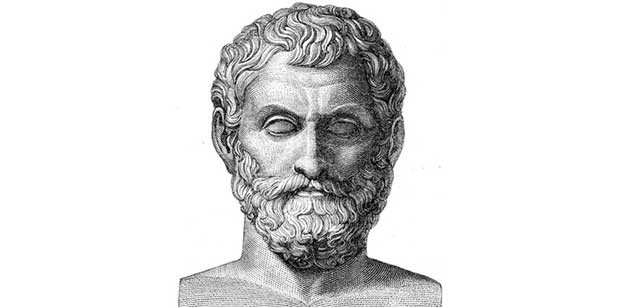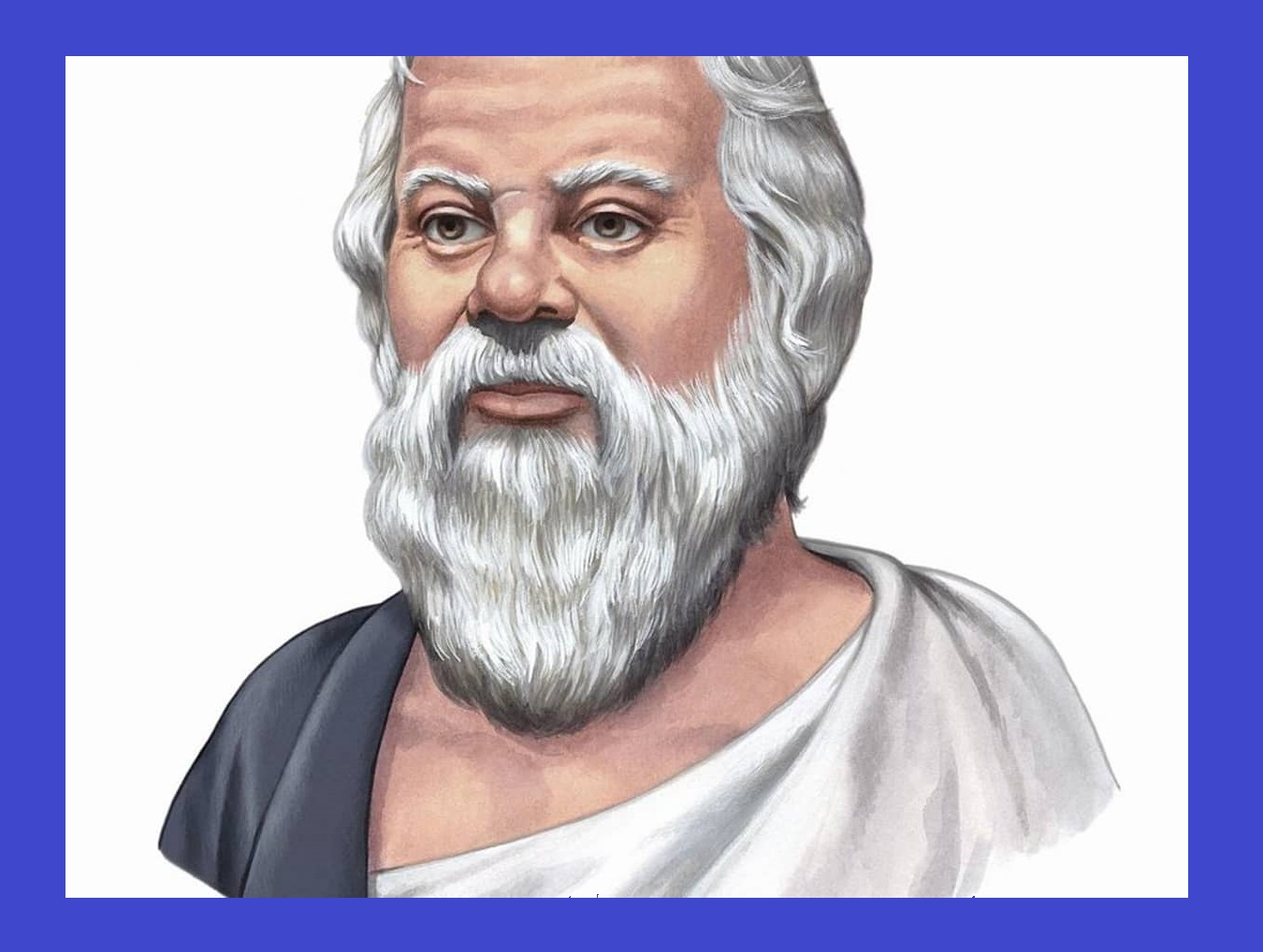Thales of Miletus: Greek Astronomer and Philosopher
– Water is the element and principle of things –
- One of the seven Sages of Greece.
- Period: Presocratic philosophy
- Fields: Ethics, Metaphysics, Mathematics, Astronomy…
- Contributions: Theorems of Thales…
- Name: Greek pronunciation
Summary
Considered one of the most renowned early Greek philosophers and mathematicians. He is often considered to be the first scientist, as he was the first to attempt to explain natural phenomena without resorting to mythology or religion. Thales’ ideas were later developed and extended by other thinkers, such as Anaximander and Anaximenes, and laid the foundations of the Western philosophical tradition.
Questions and answers
- Who was Thales of Miletus?
-He is recognized as one of the legendary Seven Sages, or Sophoi, of ancient times - What is the main theory of Thales of Miletus?
-Remembered primarily for its cosmology based on water as the essence of all matter, with the Earth floating on its surface. - What is Thales of Miletus recognized for?
-For his attempt to explain nature through the simplification of phenomena and the search for causes within nature itself.
“Take for yourself the advice you give to another”
Thales of Miletus
Thales of Miletus was born in 624 BC in Miletus , a Greek city in Ionia (today Turkey), the first year of the XXXV Olympiad.
Fathers
The son of de Examyas and Cleobulina, most biographers present him as a member of a distinguished family that may have had Phoenician origins.
Ionian School
Related to Anaximander , his disciple, and to Anaximenes , Anaximander’s disciple, all three being referred to as the Ionian or “Miletus” School. He is the first of the seven sages of Greece , renowned for his practical wisdom.
Astronomer
Already in his time his knowledge of astronomy was recognized after predicting the eclipse of the sun that occurred on May 28, 585 BC Diogenes Laertius said that he was the first to find out the race from one tropic to another, and the first to compare the magnitude of the sun with that of the moon, the latter manifested itself to be 720 times smaller than the former, as some write, who was the inventor of the seasons of the year and assigned three hundred and sixty-five days to it.
He is recognized for breaking with the use of mythology to explain the world and the universe, explaining nature and its phenomena through theories and hypotheses, that is, through science. He is said to have been the first to use deductive reasoning applied to geometry, as in Thales’ Theorem and also the first to whom a mathematical discovery has been attributed.
Thales theorem
It seems that he was the introducer of geometry in Greece. It is believed that he may have traveled to Egypt to receive teachings from the priests, where he was able to calculate the height of one of its pyramids after drawing a circle in the sand with a radius equal to his height and standing in the center. When the shadow touched the circumference, that is, when the length of the shadow was equal to the height, one of his assistants measured the shadow of the pyramid and in this way they were able to know its height, devising the theorem that would lead to their name: Thales’s theorem .
The Universal Sea
He was also the first in history to be interested in magnets, believing that the magnetized stone had a soul, because iron is attracted to them by magnetism. He maintained that the beginning of all things is water, from which everything comes. He believed that the Earth was a flat circular disk floating on water (the universal sea). He held the principle that everything was in living animate matter, which was driven by an internal force of transformation.
Wealth
Tired of the ridicule of his fellow citizens as they said it was strange that being so wise he was not equally rich. He got rich speculating with the oil knowing that there was going to be a good olive harvest, he rented all the presses he could find, monopolizing the market, and then rented them at the price he set and became rich in a single year. After this he sold presses and land and returned to his studies while eliminating the jokes he was subjected to.
He left no writings, and what is known about him comes from what is told in Aristotle ‘s Metaphysics . Aristotle, among others, regarded him as the first philosopher in the Greek tradition.
It is said that he married and had a son, but also that he never had them and that he adopted a nephew.
Death
Thales of Miletus died in 543 BC of sunstroke in Aydin , Anatolia, while watching some gymnastic games in the LVIII Olympiad, according to Diogenes Laertius.
Recapitulation
- He is credited with being the first thinker to attempt to explain the natural world in terms of principles or underlying causes.
- Thales’s ideas were revolutionary for their time and laid the foundation for the development of Western science and philosophy.
- Thales of Miletus was a pre-Socratic Greek philosopher considered the first philosopher of the Western tradition.
- He held that water is the fundamental principle of all things.
- He also believed that the earth floats on water and that earthquakes are caused by the movement of the earth on the liquid.
- He studied astronomy and mathematics, and is credited with being the first person to predict a solar eclipse.
Did you know…
Prediction
Thales of Miletus predicted an eclipse that occurred in 585 BC that astonished his fellow citizens and brought him great prestige.











